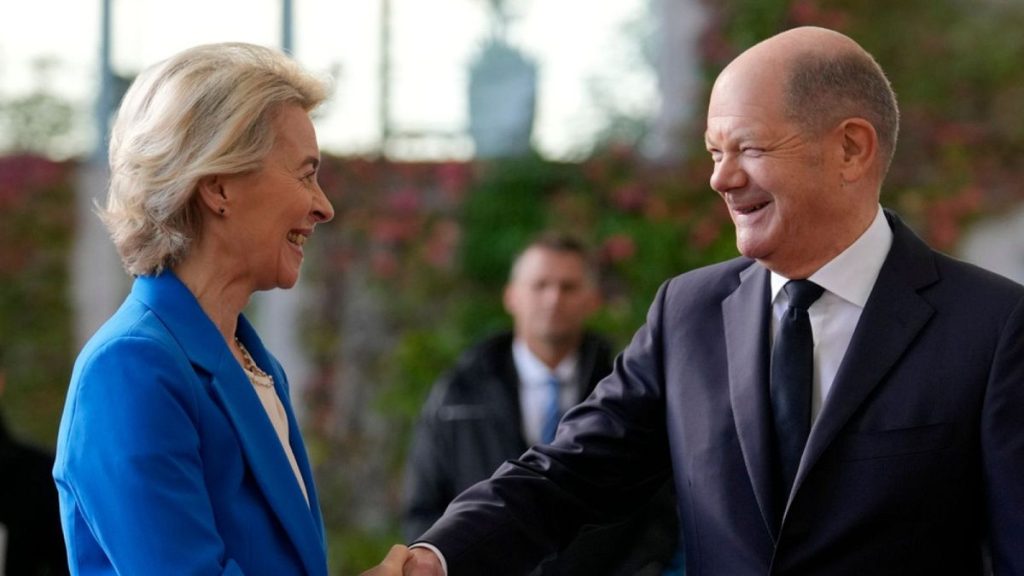The recent summit in Berlin brought together six West Balkan states, including Serbia, Kosovo, Montenegro, Bosnia & Herzegovina, Albania, and North Macedonia, with the aim of signing agreements that would bring them closer to EU membership. Five out of six agreements were signed during the summit. German Chancellor Olaf Scholz emphasized the need for cooperation among the states, as they work towards meeting the necessary conditions for EU membership. While some may progress faster than others, the Chancellor urged the states to support each other in the process. Montenegro is viewed as a promising candidate for EU integration, with expectations of meeting all requirements by 2028. Scholz expressed hope that the entire process would be completed before 2030.
Scholz also called for improved relations between Serbia and Kosovo, highlighting the importance of resolving any existing conflicts as part of the path towards EU membership. Croatia, which joined the EU in 2013, serves as a recent example of a Balkan state successfully integrating into the EU. However, in light of the accelerated memberships of Ukraine and Moldova due to the conflict in Ukraine, there may be concerns among the Balkan states about the potential impact of such geopolitical events on their own membership processes. The summit in Berlin provided an opportunity for leaders to address these concerns and reaffirm their commitment to the European integration process.
The Berlin Process, now in its tenth year, aims to facilitate the integration of the West Balkan states into the EU by providing a platform for dialogue and cooperation. The signing of agreements during the recent summit marks a significant step towards this goal, as it allows for the lifting of restrictions on exports from Serbia to Kosovo, among other measures. The process of EU membership for these states began over two decades ago, and while progress has been made, challenges remain in meeting the necessary requirements and standards set by the EU. The Berlin summit served as a reminder of the importance of continued collaboration and mutual support among the West Balkan states as they navigate the path towards EU membership.
The prospect of EU membership holds significant economic and political benefits for the West Balkan states, including access to the EU market, increased investment opportunities, and enhanced diplomatic relations. The support and encouragement from German Chancellor Olaf Scholz and EU Commission President Ursula Von der Leyen during the summit underscore the commitment of the EU to the European integration process in the region. The agreements signed during the summit not only facilitate closer ties with the EU but also demonstrate a willingness on the part of the West Balkan states to enact necessary reforms and meet EU standards in order to advance their membership aspirations. The summit provided a platform for constructive dialogue and cooperation among the West Balkan states, reaffirming their shared goal of EU integration.
The EU integration process for the West Balkan states is a complex and lengthy endeavor, requiring political will, reforms, and cooperation among the states. Despite the challenges and uncertainties posed by geopolitical events and the evolving dynamics of the EU, the West Balkan states remain committed to their goal of EU membership. The recent summit in Berlin highlighted the progress made and the remaining obstacles to be overcome on the path towards EU integration. As the states work towards meeting the necessary conditions for membership, continued support and engagement from the EU and its member states will be crucial in ensuring the success of the European integration process in the West Balkans. The Berlin Process serves as a platform for dialogue, cooperation, and mutual assistance among the West Balkan states, as they strive to achieve their aspirations of EU membership and closer ties with the European Union.


